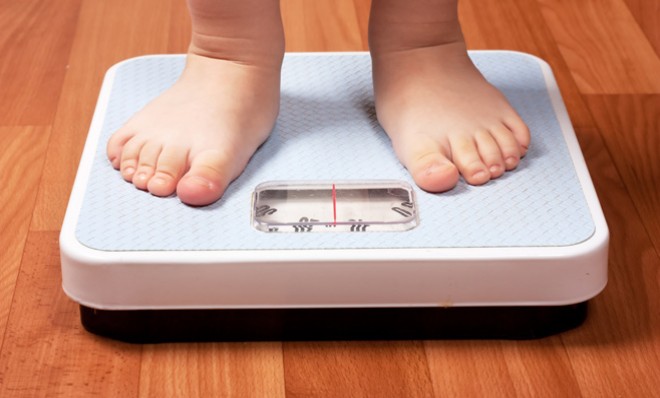The disturbing rise of anorexia among very young children
"Mommy… I am hungry all the time and I can't eat"


A free daily email with the biggest news stories of the day – and the best features from TheWeek.com
You are now subscribed
Your newsletter sign-up was successful
Is there anything more heartbreaking than a kindergartner with an eating disorder?
Sadly, such situations are all too real. Studies have shown that hospitalizations for eating disorders in children under 12 have increased by 119 percent between 1999 and 2006. And now, an unnerving ABC News story about an anorexic kindergartner is once again bringing this terrible problem to light.
According to ABC, Sophie's disease started slowly — she stopped eating sweets, would take smaller portions of food, and could be seen exercising compulsively on the monkey bars. The kindergartner also complained of physical ailments — being dizzy, itchy, and constipated — before finally confiding in her mother. "Mommy, I have a problem," Sophie said one night at bedtime. "I am hungry all the time and I can't eat… A voice in my head is telling me not to eat."
The Week
Escape your echo chamber. Get the facts behind the news, plus analysis from multiple perspectives.

Sign up for The Week's Free Newsletters
From our morning news briefing to a weekly Good News Newsletter, get the best of The Week delivered directly to your inbox.
From our morning news briefing to a weekly Good News Newsletter, get the best of The Week delivered directly to your inbox.
The ABC story continues:
When Sophie was finally diagnosed in first grade, she hadn't gained a pound for 10 months and had dropped from the 60th to the 19th percentile on the weight charts. [ABC]
Anorexia nervosa is a biological disorder with deep roots in the brain. It is highly inheritable, though the triggers are social, and can include anything from trauma and divorce to an off-hand comment. Sophie, who is adopted, reportedly remembers her teacher telling her she had to eat healthy. And being an anxious perfectionist, according to her mother, the young girl likely took that rule to a very unhealthy extreme.
Children who are at risk of developing an eating disorder often have high anxiety along with perfectionist and obsessive-compulsive tendencies, psychologist Dina Zeckhausen told CNN last year. And starting overweight children on diets too early can trigger obsessive feelings about food. Instead, parents should try getting their overweight children into sports, become more active as a family, and provide healthier food options, Zeckhausen says.
And while it can be hard for parents to keep track of or even admit a child's unhealthy weight loss, Zeckhausen says, it's imperative that these young children get treatment and go into recovery before puberty begins "so the child can accept and cope with the normal weight gain of puberty."
A free daily email with the biggest news stories of the day – and the best features from TheWeek.com
Another big problem: Extensive weight loss in developing bodies affects every organ, including the brain. Without weight restoration, a child's cognitive abilities may begin to suffer.
In Sophie's case, her mother was very proactive once she realized her daughter's issue. And today, Sophie, now 8, has seen her physical symptoms of malnourishment gone. She's showing signs of improvement. Sophie's school meals have to be supervised — but she's not compulsively exercising anymore. And that, at least, is progress.
Lauren Hansen produces The Week’s podcasts and videos and edits the photo blog, Captured. She also manages the production of the magazine's iPad app. A graduate of Kenyon College and Northwestern University, she previously worked at the BBC and Frontline. She knows a thing or two about pretty pictures and cute puppies, both of which she tweets about @mylaurenhansen.
